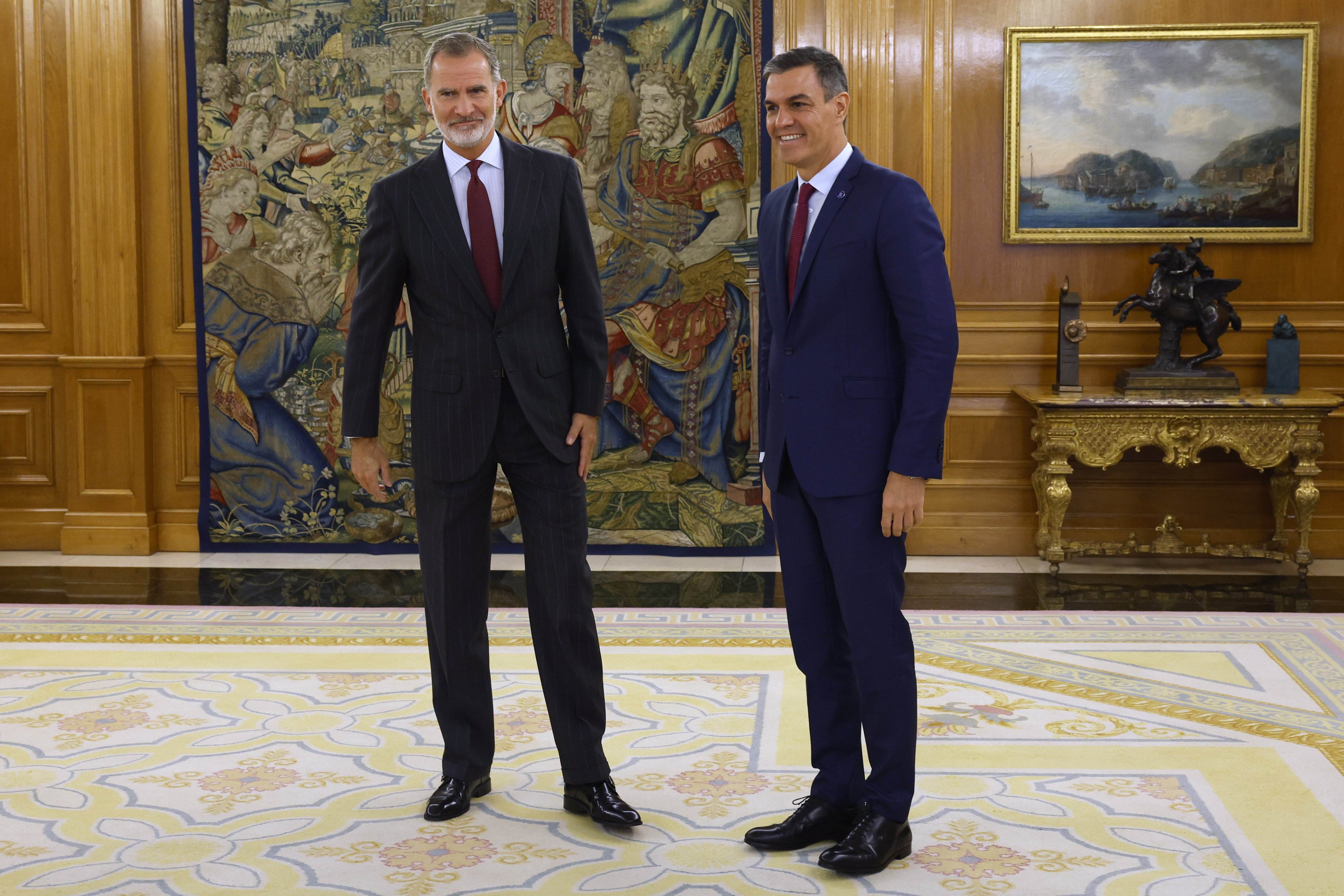The speaker of the Congress of Deputies, Francina Armengol, has announced that Spain's king Felipe VI, has proposed to Pedro Sánchez that he should present his candidature to lead the Spanish government for a second term, with no date yet fixed for the investiture debate and vote in Congress. This is what the head of state decided this Tuesday at noon after meeting with all the political parties that wanted to meet with him at the Zarzuela royal palace. After Alberto Núñez Feijóo's attempt turned out to be a failure, the monarch is inclined to let the Socialist try his luck despite not yet having the support of either Junts or ERC guaranteed. In fact, at the moment he only has the 121 votes of his own Spanish Socialist (PSOE) MPs committed.
In her press appearance, Armengol did not clarify when the investiture debate will be, with the key being that Pedro Sánchez will need time to negotiate with the parties with whom he needs to ally. The first step, she explained, will be to communicate Felipe VI's decision to the candidate, from whom she will hear "the timing proposal" he wants to put on the table. In her opinion, Sánchez must now start "political negotiations" with the rest of the parties and, appealing to "common sense", she affirmed that she will convene the debate "urgently" when the decision "is sufficiently mature" .
The amnesty, central to the negotiation
With his candidature for the investiture now formalized, Pedro Sánchez is given time to negotiate the supports for the investiture. The final deadline possible is November 27th. At the outset he will have to seduce the 31 votes of the alternative left platform Sumar by offering leader Yolanda Díaz a pact to repeat the coalition of the last legislature (when the grouping was led by Unidas Podemos). However, the hardest task will be to convince the 14 Catalan pro-independence MPs in Congress, those of Together for Catalonia (Junts) and the Catalan Republican Left (ERC), who are demanding the passing of the law granting an amnesty to those affected by independence prosecutions as well as some gesture on the part of the Spanish government in relation to the self-determination referendum, as they set down in writing last week in the Catalan Parliament. Moreover, the PSOE aspires to achieve the support of 179 deputies in total, including those of the Basque parties EH Bildu and the PNV, and the Coalición Canaria, which voted for Feijóo last week but has opened itself for talks with the Socialists.
Thus, Sánchez is tasked with the mission that was previously in the hands of People's Party (PP) leader Feijóo, who last week unsuccessfully attempted to be sworn in at the Congress of Deputies. In the two votes, the one on Wednesday and the one on Friday, the PP leader was stuck fast at 172 votes, four short of the required absolute majority: 137 from his party, 33 from Vox and two from Unión del Pueblo Navarro and the Coalición Canaria. The PP leader, who will be attending the anti-amnesty demonstration organized by the Sociedad Civil Catalana group in Barcelona this Sunday, believes that Sánchez is building the "government of lies". The other scenario raised by the PP, as he said during the investiture, is a repeat election, which, if Sánchez fails, already has a date: January 14th.

